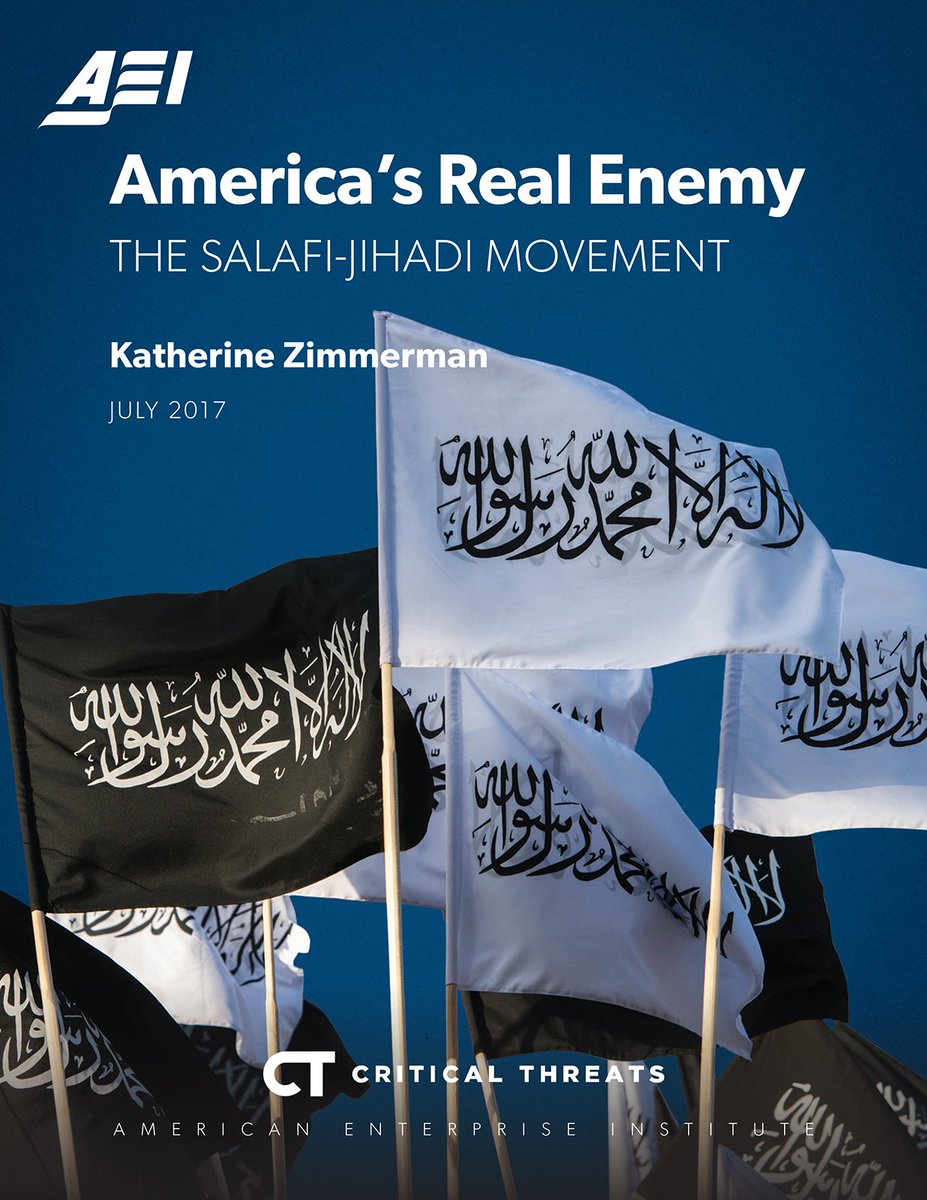This is Robin Simcox’s, of the Heritage Foundation, response to Katherine Zimmerman’s report, “America’s Real Enemy.”
******
Political Islamists are a different type of enemy than the violent Islamists of al-Qaeda, ISIS and the Salafi-jihadi movement to which Zimmerman’s report refers. However, there are a multitude of reasons as to why they are an enemy all the same. I will offer three.
- Firstly, there is a convergence of views and aims. Both violent and nonviolent Islamists would contend that Islam cannot be “just” a faith. Rather, they insist, it includes an all-encompassing socio-political system. Both contend that the ideal state would be one governed by sharia, and both aspire for the restoration of an Islamic Caliphate.
The main difference is how bloody they think the process of restoration should be. ISIS is willing to commit acts of terrorism in the US to bring this about, whereas a group like Hizb ut-Tahrir is not.
Yet in harnessing support for such views, both violent and nonviolent Islamists refer to a glorious past where Islam was resurgent and construct grievance narratives that help explain the comparatively weakened state it finds itself in today. The purpose of doing so is to strengthen a sense of Muslim identity and weaken competing pulls on a sense of identity, such as nationalism.
- Secondly, treating political Islamists as enemies helps ensure we do not mistake them for friends. This is no moot concern. Too often, Western policy labors under the delusion that we can draw ”moderate” Islamists away from the violent radicals in some kind of substantial or meaningful way; or that political Islamists can beused as a “firewall” to prevent radicalization into violent Islamism.
The hope of doing so helps explain why Western governments feel the need to engage constantly with Islamist groups. Indeed, the State Department recently hosted the Muslim Brotherhood-linked Council on American Islamic Relations and the Islamic Circle of North America. Previous administrations did the same. This is a mistake. Rather than bring Islamists into the fold, they should be isolated. The ideology they adhere to should be exposed and their beliefs contrasted to those of truly moderate Muslims.
- Thirdly, Washington’s ability to harness support for its actions in the international arena will suffer unless America helps its allies defeat political Islam in their own countries.
Take the example of European countries’ backing for future US military operations. Even now, a UK Ministry of Defence memorandum has warned that the nature of being “an increasingly diverse nation” and having British troops being “seen taking action mainly in Muslim societies,” means that future troop deployments a la Afghanistan and Iraq are political nonstarters. This is not just due to a fear of reprisal attacks from violent Islamists in the UK, but because of political Islamists’ ability to use these wars to whip up discontent in Muslim communities and stoke divisions in wider society.

Robin Simcox
Margaret Thatcher Fellow, Margaret Thatcher Center for Freedom, Davis Institute for National Security and Foreign Policy
Robin Simcox specializes in terrorism and national security analysis as the Margaret Thatcher Fellow.
So a consequence of political Islam’s strength in the UK is that America may not be able to count on the support of an ally that has historically been the most reliable of military partners. It is true that American Muslims have proven, overall, quite adept at resisting both these brands of Islamism. Yet if that picture is not being replicated among America’s allies, it is also only of limited relevance.
Yes, violent Islamism presents the most pressing national security threat, and its defeat understandably must be a top priority. However, it is Islamism, in all its guises, which is America’s real enemy.








































admin in: How the Muslim Brotherhood betrayed Saudi Arabia?
Great article with insight ...
https://www.viagrapascherfr.com/achat-sildenafil-pfizer-tarif/ in: Cross-region cooperation between anti-terrorism agencies needed
Hello there, just became aware of your blog through Google, and found ...